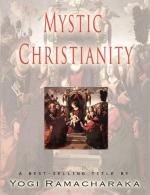Summing up the views of the Higher Criticism, we may say that the general position taken by the opponents and deniers of the Virgin Birth of Jesus is about as follows:
1. The story of the Virgin Birth is found only in the introductory portion of two of the four Gospels—Matthew and Luke—and even in these the story bears the appearance of having been “fitted in” by later writers.
2. Even Matthew and Luke are silent about the matter after the statements in the introductory part of their Gospels, which could scarcely occur had the story been written by and believed in by the writers, such action on their part being contrary to human custom and probability.
3. The Gospels of Mark and John are absolutely silent on the subject; the oldest of the Gospels—that of Mark—bears no trace of the legend; and the latest Gospel—that of John—being equally free from its mention.
4. The rest of the New Testament breathes not a word of the story or doctrine. The Book of Acts, generally accepted as having also been written by Luke, ignores the subject completely. Paul, the teacher of Luke, and the great writer of the Early Church, seems to know nothing whatever about the Virgin Birth, or else purposely ignores it entirely, the latter being unbelievable in such a man. Peter, the First Apostle, makes no mention of the story or doctrine in his great Epistles, which fact is inconceivable if he knew of and believed in the legend. The Book of Revelation is likewise silent upon this doctrine which played so important a part in the later history of the Church. The great writings of the New Testament contain no mention of the story, outside of the brief mention in Matthew and Luke, alluded to above.
5. There are many verses in the Gospels and Epistles which go to prove, either that the story was unknown to the writers, or else not accepted by them. The genealogies of Joseph are cited to prove the descent of Jesus from David, which depends entirely upon the fact of Joseph’s actual parentage. Jesus is repeatedly and freely mentioned as the son of Joseph. Paul and the other Apostles hold firmly to the doctrine of the necessity of the Death of Jesus; his Rising from the Dead; and his Ascension into Heaven, etc. But they had nothing to say regarding any necessity for his Virgin Birth, or the necessity for the acceptance of any such doctrine—they are absolutely silent on this point, although they were careful men, omitting no important detail of doctrine. Paul even speaks of Jesus as “of the seed of David.” (Rom. 1:3.)
6. The Virgin Birth was not a part of the early traditions or doctrine of the Church, but was unknown to it. And it is not referred to in the preaching and teaching of the Apostles, as may have been seen by reference to the Book of Acts. This book, which relates the Acts and




